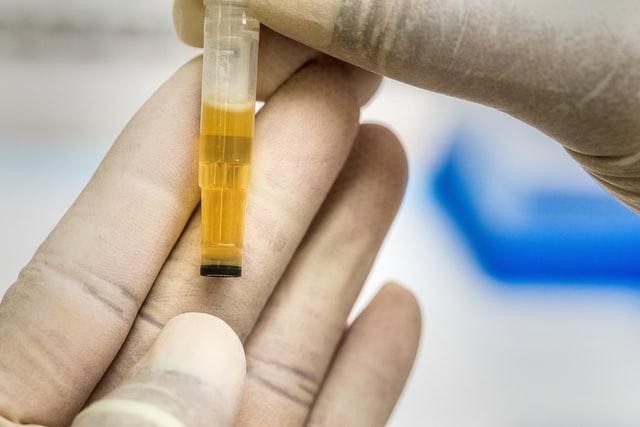
The level of what now? If this is your first time hearing or reading about it, don’t worry. We have you covered! Ketones are essentially a by-product of burning fat in the body. The presence of ketones in urine has been a topic of hot debate among ketogenic dieters and health experts. Some people say that ketones in urine after a high-fat meal are completely normal.
Contents
In contrast, others believe that it indicates diabetic ketoacidosis when high levels of ketones are found in your urine. But before we jump to conclusions, let’s get the facts straight, shall we?
In this article, you will learn everything you need to know about ketones in urine, what a dangerous level of ketones in the urine is, common symptoms you should look out for, and how to prevent ketone formation (even after eating a high-protein breakfast!). So, enough chit chat, and let’s dive right into it.
What are ketones in urine?
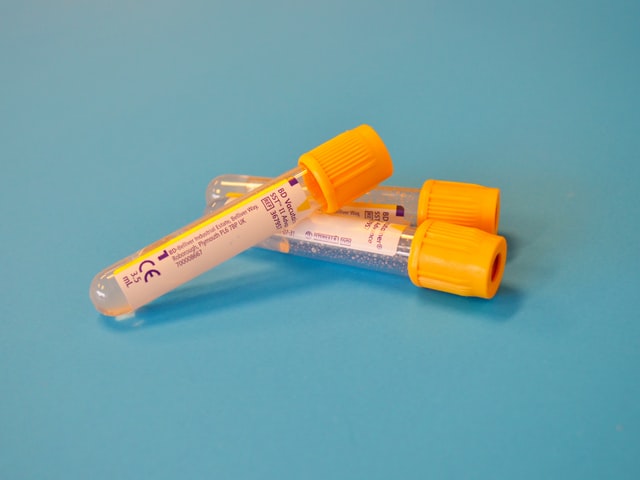
When people don’t consume or incorporate enough carbohydrates into their daily meal plans, this increases the likelihood of ketone production. So, how does this happen? You may ask. Well, we are glad you did (let’s just pretend you did)!
As we all know, glucose is our body’s primary source of energy to carry out our day-to-day activities such as commuting to work, grocery shopping, etc.
Now, if, for whatever reason, it may be, our body has lower levels the glucose than normal, or when there isn’t enough insulin to utilize glucose, our body will then resort to our breaking down fat for energy as an alternative. Hence, ketones are formed as a result of this.
While it may seem or sound like a disease of some sort, ketones are a vital component that contributes to our overall physical health. Better yet, both protein and fat comprise ketones for the most part (who knew, right?)
When the body produces high levels of ketones, this causes a process called ketosis to occur. Ketosis is essentially a metabolic process associated with weight loss, which is why you may have heard the term Keto Diet every once in a while, where it typically involves diets with low levels of carbohydrates. Rest assured, it is normally nothing to be worried about.
Like all things, too much of anything is never a good thing. Where in this case, too many ketones can cause health complications such as diabetic ketoacidosis, which people with type 1 diabetes are particularly prone to this condition.
Diabetic ketoacidosis is known to potentially be lethal if left unattended and untreated and also serves as an indicator that one might have diabetes before one actually gets their first diagnosis. So, how would you know if you have ketones in your urine? Read on to learn more.
How to know if one has ketones?
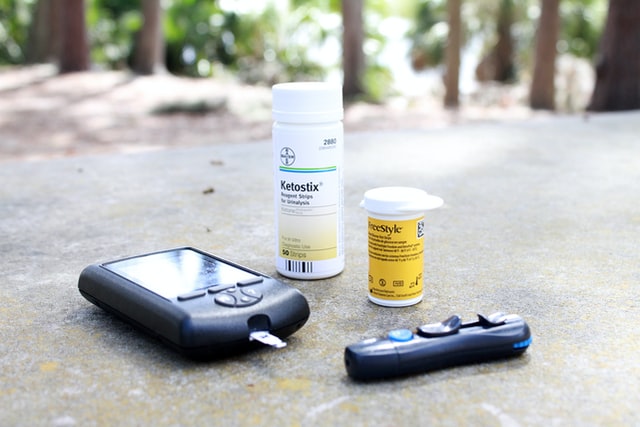
When you visit the clinic, your doctor will likely test your ketone levels by either blood or urine to indicate whether or not you have abnormally high ketones or not. For this article, we will only be discussing the urine test. If you have low blood glucose levels, type 1 diabetes, or any other symptoms associated with diabetic ketoacidosis, then we highly recommend you take a urine test just to be safe.
There are two ways you can get tested for ketones in the urine at a clinic or hospital or in the comfort of your home.
Suppose you choose to administer the urine test at a local healthcare facility. In that case, you are required to avoid eating anything a couple of hours before the urine test (we know how hard it can be, but you got this!) Then, the local healthcare provider(s) would collect 1 to 2 ounces of your urine, sealed in a sterilized cup, and have it tested.
On the other hand, if you choose to do it at home, your local healthcare provider would usually give you a test strip and urine collection container (which should look like a plastic cup). And no, you cannot consume any meals for a couple of hours before you take the urine test.
You will notice that there are identical colour charts on the test strip and the urine collection container, which indicate your ketone level in the urine. The colour will then determine your ketone levels and eventually indicate whether it is at a healthy level or a level that requires medical attention.
Before you push the panic button when you first find out about the results, please note that your level of ketones is affected by various factors such as age, underlying health conditions present, lifestyle, and gender. Your doctor should explain the details further as it would vary from one person to another.
Levels of ketones in the urine
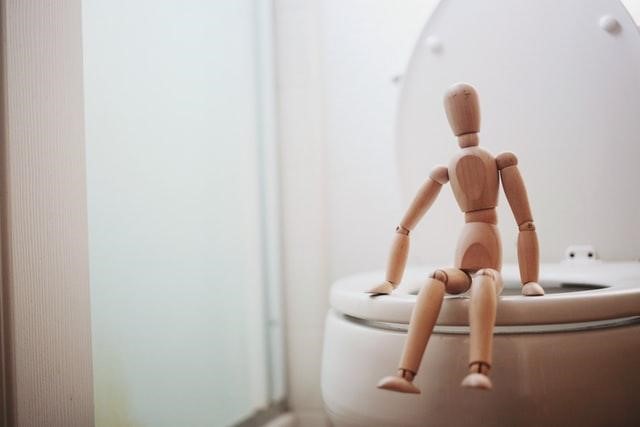
This would be indicated by either getting a negative or abnormal result. A negative result would mean that you are in the green zone of ketone levels. In contrast, an abnormal result would indicate higher ketone levels than normal. This result is then further divided into three different levels of ketones in urine that you should know about, that is, either low (small), moderate, or high (large).
Typically if you have a small level of ketones (lower than 20 mg/dL), you can take a deep sigh of relief, as everything is perfectly fine. If you have a moderate level of ketones in your urine (30 to 40 mg/dL), we would encourage you to consult your local healthcare provider for medical advice as a precautionary measure. And if you have high levels of ketones (higher than 80 mg/dL), contact your local healthcare provider immediately and discuss possible treatment methods.
Note: A urine test for ketones would only indicate current levels of ketone and may be less accurate than a blood test. It would be possible that your doctor would choose to administer a blood test.
What causes ketones in urine?
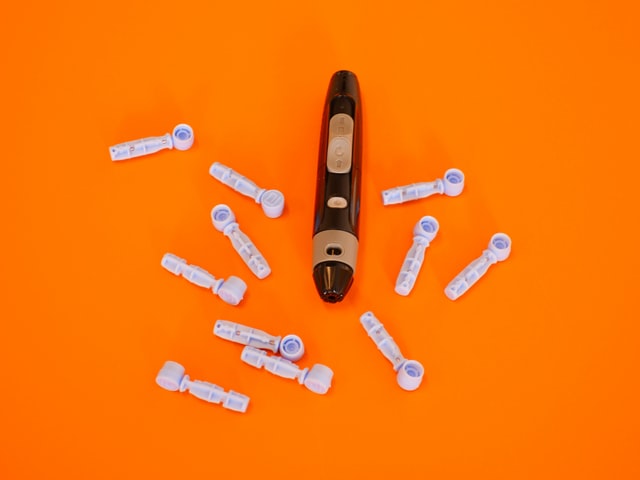
Based on CDC (Centers for Disease Control and Prevention) reports, high levels of ketones in urine are typically found in people with high blood glucose levels and low insulin levels. This would then be the likely cause of diabetic ketoacidosis to develop over time.
Aside from that, abnormal levels of ketones can also be caused by the following factors:
- Pregnancy
- Has pancreatitis
- Heart attack or stroke
- Trauma
- Low insulin levels in the body
- Intense exercise with high blood glucose levels
- Prescribed to diuretics or corticosteroids
- Any infection that causes an increase in adrenaline or any other hormone(s) that counters insulin
Note: If you have any of the following health conditions, contact your local healthcare provider for a diagnosis and possible treatment.
Common symptoms

The most common symptom of high ketone levels is an increase in urination. This happens because your body uses more fluids to flush out excess ketone bodies through your kidneys and urine. You might also experience the following symptoms:
- Nausea and vomiting
- Sore muscles
- Headache
- Abnormal weight loss
- Dizziness or lightheadedness
- Shortness of breath
- Abnormal thirst levels
- Abdominal pain
If you know you have type 1 diabetes or any of the listed symptoms above, you should promptly contact your local healthcare provider for medical attention and treatment.
When to seek medical attention

If you are experiencing any of the following symptoms:
- Trouble breathing
- Stomach pain
- Excessive thirsty
- Frequent urine sessions
- Fatigue
Then immediately get yourself or ask someone to take you to your local health care facility. Also, if your at-home urine test came back abnormal, you should immediately contact your doctor to book your next appointment for a full diagnosis.
Treating and managing ketones in the urine

Once you have received your doctor’s diagnosis, you may be presented with several treatments as your options. Some of the widely known treatments are electrolytes replacement, insulin therapy, and, last but not least, fluid replacement treatment.
In order to manage or avoid high levels of ketones in the future (especially if you have type 1 diabetes), ensure that you:
- Keep a close eye on your blood glucose and insulin levels regularly
- Consult with your doctor or nutritionist on a carb diet to keep your glucose levels up and normal
- Drink plenty of water
- Exercise moderately for around 150 minutes weekly
- Stick to your current (if any) insulin therapy plan
- Have your ketone levels regularly checked
By doing so, you’ll be one step closer to a more sustainable and healthy lifestyle without the need to worry about further health complications or more frequent trips to the hospital.
The bottom line

Ketones can be a sign that your body isn't getting enough carbohydrates and is breaking down fat instead. A moderate ketone level can lead to weight loss. But a high level of ketones in urine may mean an underlying health issue.
If you have high levels of ketone at 80 mg/dL or higher, as indicated by a urine test, then you should immediately seek medical attention for diagnosis and discuss treatment plans and alternatives. This is especially critical if you have type 1 diabetes, low blood glucose levels, or low insulin levels.
Moving forward, to help you manage a healthy level of ketones, your local healthcare provider may recommend regular monitoring of your ketone levels, a change to a carb-based diet, and regular exercise as the most common ways to help you manage your ketone levels in urine.





